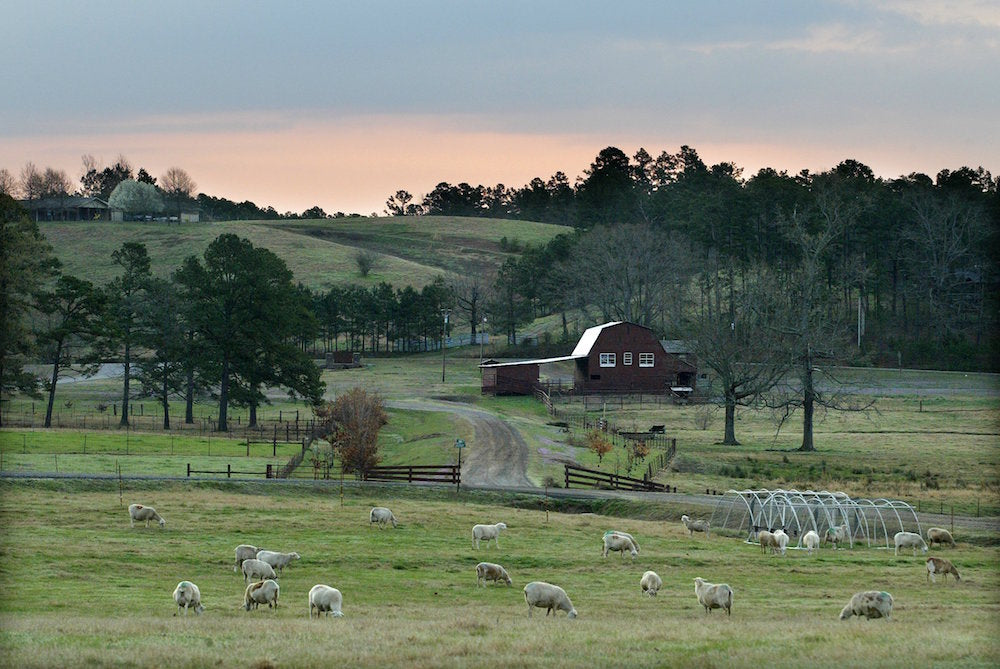More Than You Ever Thought You'd Want To Know About Sheep

In this post you will learn:
-
What a “hair sheep” is
-
3 fun facts about hair sheep
-
3 indisputable reasons hair sheep make for an exceptional eating experience
More than you ever wanted to know about sheep? Maybe. But we think it’s pretty interesting stuff and simply can’t resist sharing it.
What Is A Hair Sheep?
Let’s start with the basics. Judging by name alone, you might guess that these furry animals are bred and raised for shearing. But, if you did, you’d be wrong. Wool and hair—it turns out—are quite different growths. Wool is a soft, curly undergrowth used for making fabric or yarn. Hair is different. And let’s just leave it at that because if we dig in too deep to fiber and follicles and the like, you’ll here all day. Suffice it to say, we don’t know of anyone shaving sheep hair for their next knitting project.
“Wool sheep” refers to a collection of breeds raised for their wool, whereas hair sheep are breed primarily for meat. Some hair sheep breeds do produce a little bit of wool, but it’s usually shed and is not useable for repurposing. But what these breeds lack in fur desirability they make up for in deliciousness. More about that later. First, as promised…
Three Fun Facts About Hair Sheep
They make excellent mothers. Apparently, these sheep embody all the traits of a quintessential mammalian mother—they give birth easily, they produce plenty of milk, and they are docile around their young. All of these qualities make maintaining a healthy herd easier for the farmers raising them.
They aren’t just fair weather friends. Hair sheep—because of the furry feature after which they are named—are adaptable to all kinds of environments. Because they have the ability to shed longer hair in warmer seasons and to keep on a little wool if they need it, these animals can thrive in a variety of climates.
They play well with others. Hair sheep are a welcome addition to pasture-based rotational grazing systems because they eat different forage than the cows and chickens do. In fact, they help control weeds and brush that other species won’t touch. And they are small enough to consume appropriate quantities without risk of over grazing, especially when regularly rotated to new pasture, as Grass Roots sheep are.
All of these nuggets of information about hair sheep aren’t just entertaining—they’re also reasons these livestock are attractive to small-scale farmers interested in diversifying their production system without adding an unsustainable amount of labor or resources to their operation.
The list of qualities that make them relatively easy to raise actually goes on and on. But, let’s pivot. Why are hair sheep advantageous to you, the consumer? We thought you’d never ask.
Three Indisputable Reasons Hair Sheep Make For An Exceptional Eating Experience
Mild flavor. Wool sheep produce a wax called lanolin that protects their gorgeous coats and makes them water resistant. Unfortunately, the lanolin also has a pretty foul odor. And many discerning diners find that this affect the taste of the meat. But hair sheep do not make lanolin, so their meat is much milder in flavor.
Perfect tenderness. Wool sheep breeds are typical large and muscular, as they are meant to survive cold and often rugged terrains. Not true for the daintier hair sheep. Their small frame and gentle musculature keeps their meat tender.
Lean meat. The smaller frame and efficient digestive system of the hair sheep breeds also make their meat high in protein and low in fat. This is particularly true of 100% grass-fed sheep, which Grass Roots sheep absolutely are. And grass-fed lamb is also an excellent source of amino acids and variety of vitamins and minerals.



